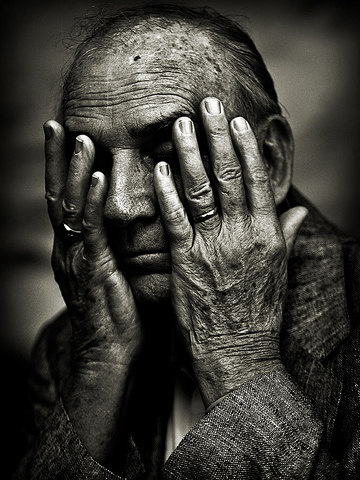Is the glass half full or half empty?
A question most of us have heard, I am sure. But what is the real meaning of this famous idiom? How do our attitudes affect our lives and the way we interpret them? The way we perceive life as a whole, and ultimately how we live it is all determined by our attitudes.
Let me explain this idiom in more detail. When we imagine a drink we automatically assume it will be a full glass- the normal capacity. When the optimist perceives the glass to be half full they are making the assumption that it is half more than what they had to begin with. A glass can only be half full when compared to an empty glass. The pessimist discerns the glass differently to the optimist. The normal capacity once again is expected to be a full glass, and when presented with a half full glass he views the glass to be half less than what he had anticipated. Simplified, the pessimist is deploring that he has less than what he could have whereas the optimist appreciates what he has.
When we apply this to life as a whole it opens new doors to how we can observe the way human beings approach their lives as individuals.
Psychology is the scientific study of the human mental functions and behaviour. The area also consists of observation through symbolic analysis. It can be overwhelming to examine small behavioural incidents and register that there are reasons behind these actions. Some of these reasons may be etched as deep as the individuals childhood, their lifestyle and personal history must also be considered.
I read a lot of articles discussing philosophical topics such as, 'the meaning in life.' Once again the pessimistic/optimistic view effects what our interpretation of 'the meaning of life' is. Many have conveyed to me that they believe life to be like mould, starting of as some magnificent colours it always ends up the same- black (and fluffy?). Of course I am not one for relating my life to pieces of growing fungus, however their simplified perception of life is fairly straightforward: You are born and the 'magnificent colours' of your life take place, and then you die and are shrouded by the blackness which is sometimes referred to as the 'abyss of nothing.' Many will be convinced that this idealism of life is absurd, almost laughable. However a large portion of mankind live with this belief. Next to religion, many of which propose an after life, eternal life, a Heaven, or some other form of continuing 'life' after death, it seems an incredibly pessimistic view to believe that, rashly put, 'we are doomed.' I do not think that people who hold this opinion are naive in the slightest. Whilst I may disagree with their opinions, I believe that many of these people are very logical, clever individuals. Whilst there is no proof as to where we go where we die, they take the assumption that we go nowhere.
It's interesting though to see how this affects their everyday lives. What happens when the individual gets into a situation where they need help, and have no 'Higher Being' to speak to. Does it make them generally stronger or weaker people? Does having a religion help you on your way to finding inner peace, and make you an overall more optimistic person? Who knows.
A lot of opportunities arise in our lifetimes, all possible to achieve. It is not our strength or IQ that holds us back, but our attitudes. Self esteem is also a huge contributor in altering an attitude negatively. Believing in yourself is the biggest step you can take towards success. The rest is hard work, which every person is capable of (if they have the correct attitude towards this work).
Now look at the bigger picture. Mankind as a whole. Imagine the possibilities if we changed our attitudes towards life. Money, trade, power, we fight ourselves. Destroy buildings and cities to prove a point- we are right, you are wrong. The human race is said to be the most intellectual, intelligent of all species on earth. Yet we are destroying the Earth that is home to anywhere between 3 and 30 million species of animals, and millions of plant groups. Yet they are not harming this Earth. So in reality, who is the more intelligent species?
It is the attitude that the world revolves around Human Beings. That we are the purpose of this Earth. People need to open their minds and realise that we are in a Universe too large to comprehend, on a planet which is a mere spec in existence. Conflict over weapons and money. Mere numbers and entities, worthless in the long term. And unless we change our attitudes as a race, there will not be a 'long term' to prepare for.
-J




